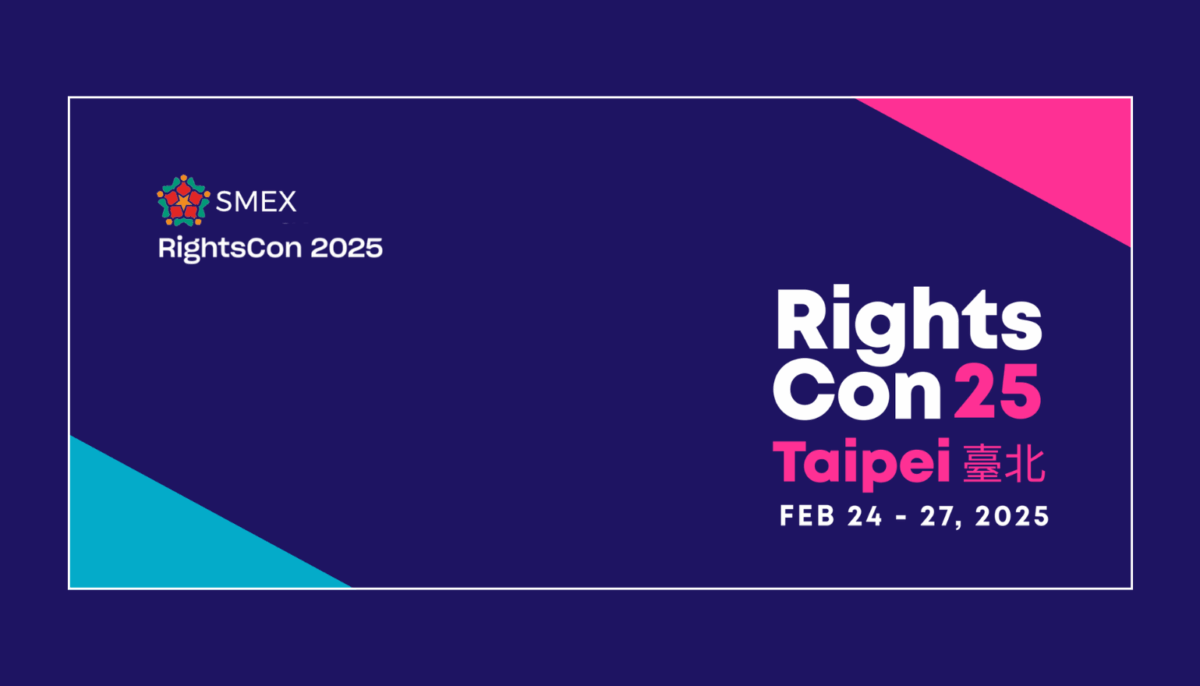From February 24 to 27, SMEX joined digital rights advocates, technologists, policymakers, and activists from around the world at RightsCon 2025 in Taipei. As one of the largest global events on human rights in the digital age, the event brought together voices from around the globe to explore urgent topics like AI ethics, content moderation, censorship, and the intersection of digital rights and sexual and reproductive health (SRH).
As part of RightsCon, our team participated in panels addressing a range of pressing issues: from freedom of expression and documenting crimes, to safeguarding data subject rights and challenging internet shutdowns.
Below are some key takeaways from our time at RightsCon 2025, including reflections from SMEX’s team and highlights from various panels.
SMEX Panels
- “Silenced and Misled: The Twin Threats of Misinformation and Censorship in SRHR”
- “The Ethical Dilemma of Content Moderation on Social Media Platforms”
- “Access Denied: Resisting Censorship, Hate Speech, and Misinformation Around SRHR Content in the Arab Region”
Sessions also covered issues such as the role of AI in the genocide in Gaza, the digital censorship of journalists and activists, and introduced public interest technologies.
“From Pakistan to Lebanon, Gaza, and all the way to Morocco, tech platforms are now competing with repressive authorities to suppress online speech, each for their own purposes,” said Abed Kataya, the Media Program Manager at SMEX.
In light of current events, attendees also tackled the funding crisis and looked for alternatives, such as engaging with the diaspora and individual donors, as well as providing paid training to generate revenue for the organization.
For SMEX, this reaffirmed our belief that collective action and cross-regional solidarity and collective action are critical to surviving turbulent times like these. Many of the panels emphasized the need to build decentralized support networks and explore alternative funding models that reduce dependency, center community engagement, and grassroots activism.
“RightsCon was an eye-opening experience that deepened my understanding of global digital rights challenges. It offered practical insights and meaningful connections that will directly strengthen my advocacy work moving forward,” expressed Sally Rammal, the Digital Safety Assessment Officer at SMEX.
Participants agreed: RightsCon helped bolster SMEX’s advocacy efforts by providing a space to brainstorm and develop innovative ideas. The team identified 20 potential partnership or networking opportunities, with eight of them flagged as high-priority, highlighting the importance of the connections made at RightsCon.
Many of the sessions emphasized that resisting digital repression requires not only solidarity but also strategic coordination between different stakeholders.
“The world is facing many challenges when it comes to digital rights. Every region has its own issues. At RightsCon, we’ve learned from one another, shared stories, and exchanged practices on how to overcome, document, and advocate against violations,” added Kataya.
Attendees agreed on the urgent need to localize digital safety efforts, ensuring that communities, particularly in the WANA region, have access to tools, resources, and trainings that are relevant, simplified, and accessible for non-technical audiences.
Central to our region’s fight for freedom of expression is the call to free Alaa Abdel Fattah from his illegal detention in Egypt. Laila Soueif, Alaa’s mother, has also spoken at the event, right before she was hospitalized because of the hunger strike she had initiated in support of her son.
Alaa has been held in illegal detention since his sentence ended on September 29, 2024.
At RightsCon, calls for the release of Alaa were amplified. Starmer’s government issued a press release, confirming that Alaa’s case was discussed one day after the event’s closing ceremony, according to EFF.
Alaa’s continued detention is a reminder of the global stakes in the fight for digital and civil liberties in our region.
The evolving landscape of the digital rights community remains deeply concerning amid ongoing funding cuts and regional instability. The discussions at RightsCon proved to be more vital than ever, as they provided civil society with practical tools and mechanisms of solidarity to collectively navigate these challenges.



